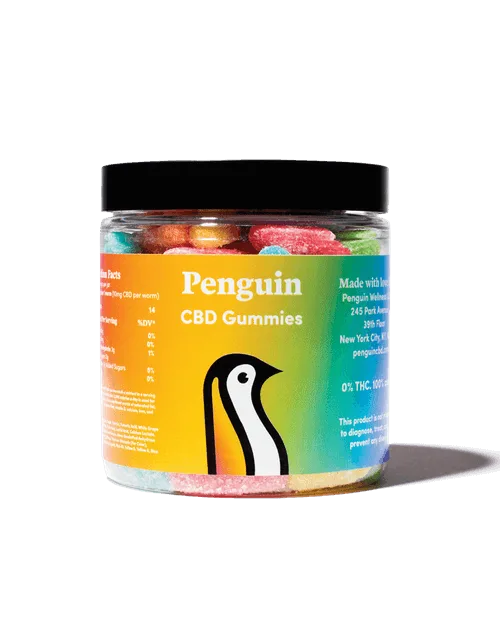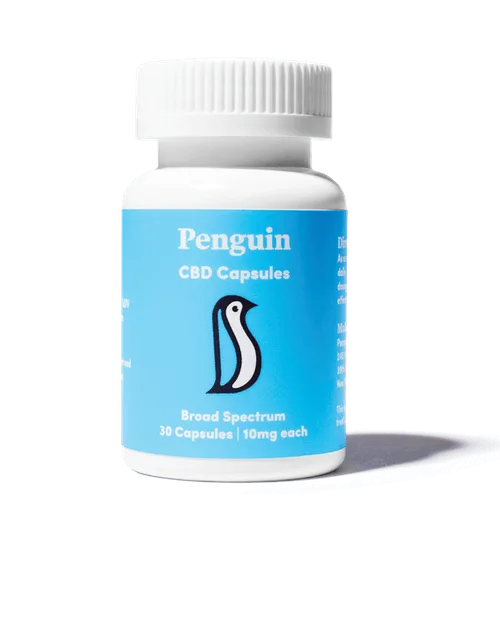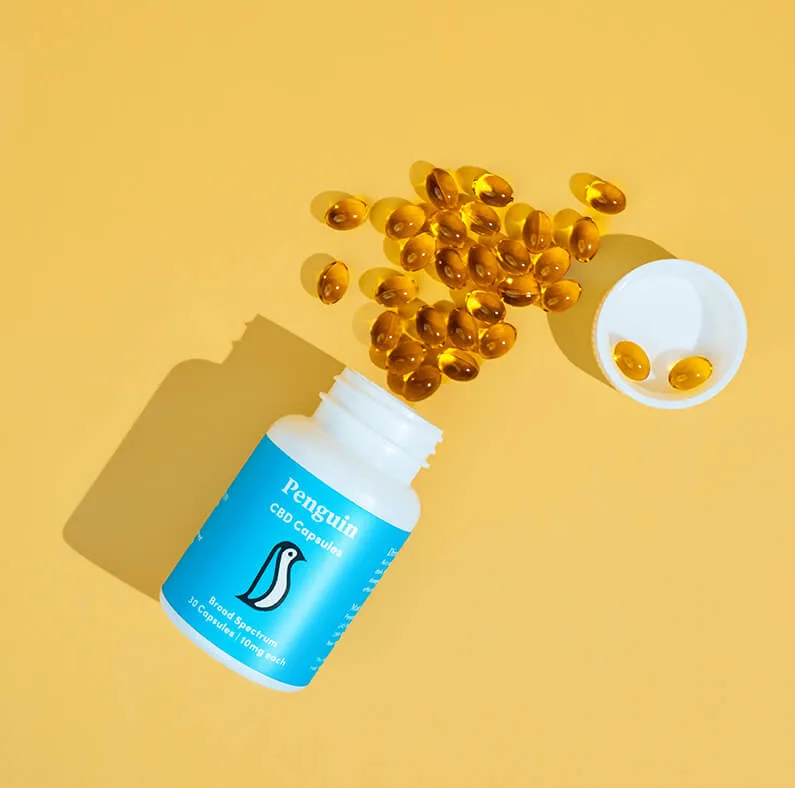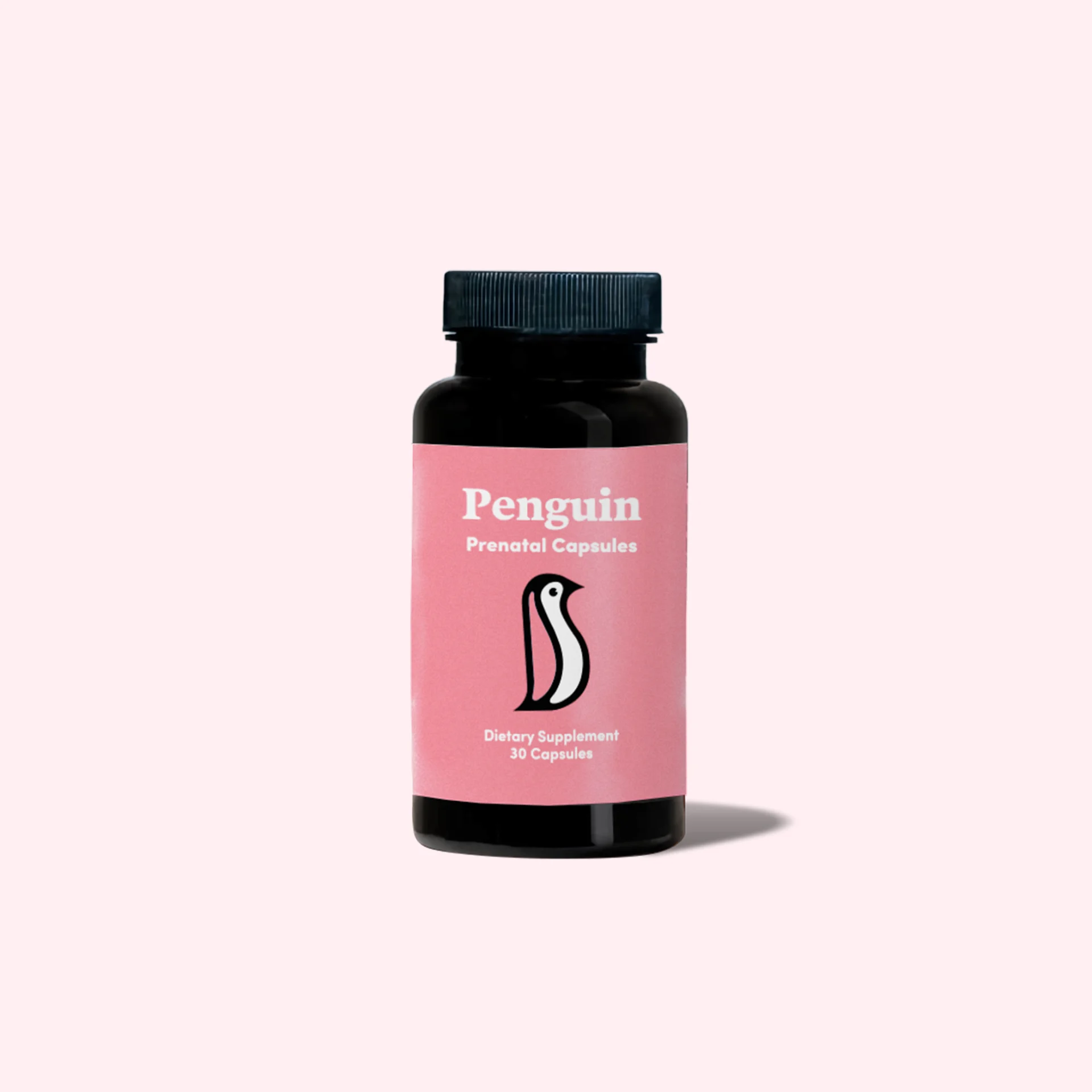Learn How CBD Has The Potential To Ease Symptoms Of Obsessive Compulsive Disorder
 By Penguin CBD
By Penguin CBDCan CBD Be A Helpful Treatment In Soothing OCD?
CBD, an element derived from the cannabis plant, stands out for its properties compared to the well-known THC. While THC is associated with inducing a sensation, CBD is gaining recognition for its health advantages, particularly in the modern landscape of mental well-being.
In a world where mental health issues are on the rise, there's a growing curiosity about remedies that can provide relief without the side effects linked to traditional medicines and prescriptions. CBD has become widely known for its benefits ranging from alleviating anxiety and depression symptoms to aiding in managing sleep disturbances and chronic pain. The potential use of CBD in addressing disorders like OCD has captured significant attention from researchers, healthcare professionals, and individuals dealing with this condition.
What is OCD?
Obsessive Compulsive Disorder (OCD) presents itself as a health challenge characterized by recurring unwanted thoughts or fears (obsessions) that trigger repetitive actions (compulsions). These obsessions and compulsions can severely disrupt an individual's routines, creating a cycle that can be challenging to break without assistance.

Obsessive Compulsive Disorder (OCD) can manifest in ways displaying symptoms that range from cleanliness and a need for order to intrusive thoughts and constant checking. The severity of these obsessions and compulsions may fluctuate, often worsening during periods of stress. Unlike habits such as checking or a preference for neatness, OCD involves rituals and thoughts that are intense, time-consuming, and distressing.
The impact of OCD on life is significant. Individuals may dedicate hours to performing rituals that disrupt their social and professional lives. The ongoing struggle with thoughts and the compulsion to engage in rituals can be draining, contributing to feelings of loneliness, anxiety, depression and sadness.
Having an understanding of OCD is essential for individuals affected by the disorder as well as their loved ones. Recognizing the signs and symptoms marks the step towards seeking assistance and discovering treatment options. While exploring both methods and alternative options, it's crucial to note that OCD is manageable with approaches including therapy, medication, and sometimes alternative treatments like CBD.

Conventional Approach For Managing OCD
The management of Obsessive Compulsive Disorder (OCD) typically involves a blend of therapy sessions and medications designed to alleviate symptoms severity while enhancing quality of life.
The prescribed drugs for OCD are Selective Serotonin Reuptake Inhibitors (SSRIs). SSRIs function by boosting serotonin levels in the brain, a neurotransmitter that regulates mood, anxiety, and feelings of well-being. While these medications can be effective, they may cause side effects like nausea, headaches, and difficulty sleeping. It can also take weeks before their benefits become noticeable. Some individuals find SSRI treatment intolerable, leading them to explore holistic alternatives.
Therapy and Behavioral Interventions
Cognitive Behavioral Therapy (CBT) is a subtype called Exposure and Response Prevention (ERP), a successful approach for treating OCD. ERP involves exposing individuals to anxiety triggers or obsessive thoughts in a controlled setting without engaging in the behaviors typically associated with them. Over time these treatments help reduce anxiety related to obsessions and decrease reliance on compulsions.
Furthermore, alternative therapeutic methods, like mindfulness and stress management techniques can enhance Cognitive Behavioral Therapy (CBT) by aiding individuals in developing coping mechanisms to handle anxiety and minimize the impact of OCD symptoms on their lives. Think yoga, meditation, breathwork, exercise, red light therapy, sun exposure, and other forms of natural stress support. Sometimes it takes some trouble shooting to figure out what works best with your symptoms, be patient you deserve it!

The most effective approach for alleviating symptoms in the majority of individuals with OCD involves a combination of medication and therapy. However, since each person's experience with OCD is unique, that means each treatment plan should help meet the needs of the individual with the possibility of being adjusted over time.
How CBD Benefits Symptoms Of OCD
Studies indicate that CBD may help alleviate symptoms of OCD by reducing anxiety and intrusive thoughts – two aspects of the condition. The anxiety-reducing properties of CBD can calm the nervous system which in turn helps manage obsessions and resisting compulsions.
Moreover, CBD might boost levels in a way that is similar to SSRIs but without the common side effects linked to those medications. Initial studies and personal accounts suggest that CBD could potentially reduce compulsions, ease anxiety, and promote well-being. This is achieved through CBD’s ability to reduce brain inflammation, regulate stress responses, and possibly impact the pathways involved in OCD directly.
A study discovered that CBD can notably lessen anxiety and compulsive behaviors in individuals, with OCD indicating its potential as an addition to treatments. Likewise, case studies have shown that some patients saw a reduction in the severity and frequency of their OCD symptoms after using CBD.

It's worth mentioning that people's responses to CBD can vary widely. What may be effective for one person may not have the same effect on another, underscoring the importance of research into how CBD impacts OCD and determining who would benefit most from its usage. If you’re feeling CBD curious, here’s our line-up of Penguin Organic Top-Quality CBD products to get started with:
- Penguin CBD Slush Cream: Enjoy a massage with the powerful benefits of CBD and the enveloping scents of essential oils, lavender, and peppermint.
- Penguin CBD Oil: Our classic tincture lifts the mood and waves goodbye to stress. Choose your dosage, and add or subtract as needed.
- Penguin CBD Capsules: This CBD version was made for the vitamin enthusiast to take on the go when traveling. It’s a preformulated capsule- no measuring required, just take as needed!
What To Keep In Mind When Using CBD:
Consult a Healthcare Professional; Before beginning CBD treatment, consult with a healthcare provider or mental health expert, especially if you are currently on medications.

Quality and Dosage; Opt for high-quality CBD products, like Penguin CBD, sourced from organic, high-quality hemp, and third-party tested. Start with a low dose and gradually adjust to your liking.
Legal Considerations; Be mindful of the status of CBD in your location and any regulations governing its use.
CBD has proven to ease a variety of health issues, it’s helped many who struggle, turning to holistic solutions for relief. It’s potentially an option for managing OCD, which is good news for those in search of natural ways to improve their quality of life. At Penguin, we are passionate about sharing CBD and more organic ways to improve health. If you have any experience using CBD for OCD, please share your opinions with us!










